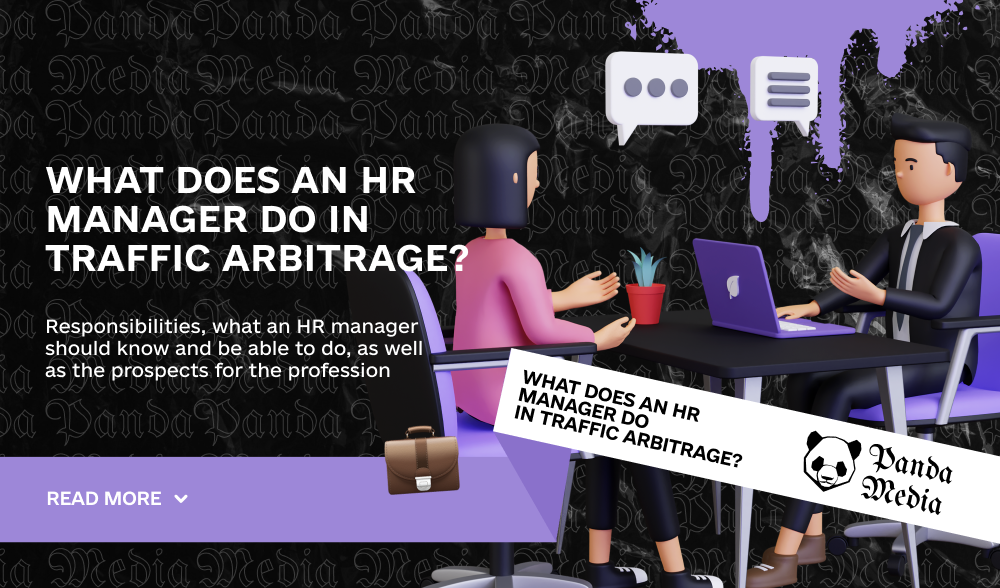An HR manager, or human resources manager, is a key professional responsible for recruiting, developing, and maintaining a qualified workforce within an organization. This specialist is involved in the search and selection of candidates, their motivation, training, professional development, and retention within the company, as well as administrative tasks.
The HR manager’s responsibilities include creating the conditions under which each employee can demonstrate their best professional and personal qualities in the interests of the company. Ultimately, the HR manager helps the organization to work more efficiently by selecting and developing a team that will contribute to the achievement of its goals.
What does an HR manager do in arbitration?

An HR manager in the field of traffic arbitration plays a key role in personnel management, adapting general HR functions to the unique requirements of this industry. The main responsibilities of such a specialist include:
- Searching for and selecting candidates who meet the specific needs of arbitrage activities.
- Creating and monitoring job postings based on the requirements specific to traffic arbitrage.
- Managing resume databases with a focus on arbitration professionals.
- Interviewing and onboarding new employees with experience in traffic arbitration.
- Organization of training and development of employees’ skills, focusing on the specifics of arbitration.
- Managing employee transitions within the arbitration team, including career development and possible reorientations.
- Developing an incentive system, which is especially important in a dynamically changing arbitration environment.
- Record keeping with due regard to the peculiarities of work in arbitration.
- Creating and implementing a strategy for searching and recruiting personnel specializing in traffic arbitration.
Thus, an HR manager in traffic arbitration adapts traditional HR functions to the specifics of this industry, taking into account its unique requirements and dynamism.
Responsibilities of an HR manager

In the role of HR manager in traffic arbitration, the HR specialist adapts traditional functions to the unique needs and dynamics of this industry:
- Developing a system of interaction with the arbitration team and managing internal processes.
- Analyzing the needs for hiring traffic arbitration specialists and researching specialized markets to select candidates.
- Organizing the process of selecting candidates who meet the unique requirements of arbitration.
- Structuring the organization in the context of arbitration, including developing job descriptions and defining departmental functions.
- Creating and maintaining arbitration-specific HR documentation.
- Development of motivational strategies aimed at increasing the productivity of the arbitration team.
- Evaluation of professional and personal qualities of employees with due regard to the requirements of arbitration activities.
- Integration of motivational systems to stimulate the efficiency of arbitrators.
- Analysis of the causes of staff turnover in arbitration and improvement of corporate culture.
- Management of salaries and bonuses adapted to arbitration activities.
- Improvement of HR management processes in the context of arbitration.
- Monitoring compliance with labor laws in the context of arbitration.
- Developing and conducting training programs aimed at developing skills in arbitration.
- Informing the team about changes in the HR policy.
- Resolving conflicts in the team, taking into account the specifics of interaction in the field of arbitration.
What an HR manager should know and be able to do

An HR manager in traffic arbitration must combine many roles, from hiring manager to organizer and mentor, with a bit of a psychological approach. Effective work in such a multifaceted field requires a set of knowledge and skills.
- Create attractive and accurate job descriptions to weed out unsuitable candidates and attract talented professionals to traffic arbitrage.
- Conduct interviews with candidates, especially initial meetings, to identify potential in the context of arbitration.
- Develop strategies for interaction within the team, including clear communication of changes in employee status or working conditions.
- Actively monitor and use corporate blogs and social media to attract candidates and interact with potential applicants.
- Have in-depth knowledge of labor law, adapted to the specifics of arbitration activities.
- Integrate HR management systems to optimize document flow, and monitor employee performance, payroll, and other aspects of mutual settlements.
- Manage time effectively using modern project management methodologies to maximize workflow automation.
- Organize a system of training and development of employees, including adaptation programs for newcomers and advanced training for experienced employees, with a focus on career growth in traffic arbitration.
Prospects for the profession

In traffic arbitration, as in many other areas, the role of the HR manager continues to be key, despite the growth of large companies and the increase in their staff. Experienced HR professionals will be in demand not only in 2024 but also in the future, as effective HR management is critical to the success of an organization.
Automation and the development of artificial intelligence are certainly changing approaches to recruitment and management, but human interaction remains indispensable, especially in such a dynamic area as traffic arbitrage.
Generation Z, which is actively entering the labor market, requires a new approach to management and communication within the company. These young professionals expect transparency, quick feedback, and equal dialog with management, which makes the role of HR in traffic arbitration even more important, as it is HR managers who create and maintain a corporate culture that meets these expectations.
FAQ
What does an HR manager do in arbitration?
An HR manager in arbitration is engaged in the recruitment, training, and retention of qualified specialists in the field of traffic arbitration. They are responsible for building and maintaining a productive and motivated team of arbitrators.
Does an HR manager recruit arbitration specialists?
The HR manager analyzes the company’s needs for arbitration specialists, creates and publishes vacancies, conducts interviews, and evaluates applicants for their skills and experience in traffic arbitration.
What is the training of employees that the HR manager is responsible for in arbitration?
The HR manager organizes training programs aimed at improving the skills of employees in the field of arbitration, including knowledge of the market, arbitration tools, analytics, and optimization of advertising campaigns.
Does the HR manager influence the motivation of the arbitration team?
The HR manager develops and implements motivation and incentive systems aimed at increasing the productivity and satisfaction of employees, helping them to achieve the best results in arbitration.
What tasks does an HR manager perform in arbitration?
The HR manager analyzes the reasons for staff turnover in arbitration and develops strategies to retain valuable employees, including career development, corporate culture, and working conditions adapted to the specifics of work in arbitration.




